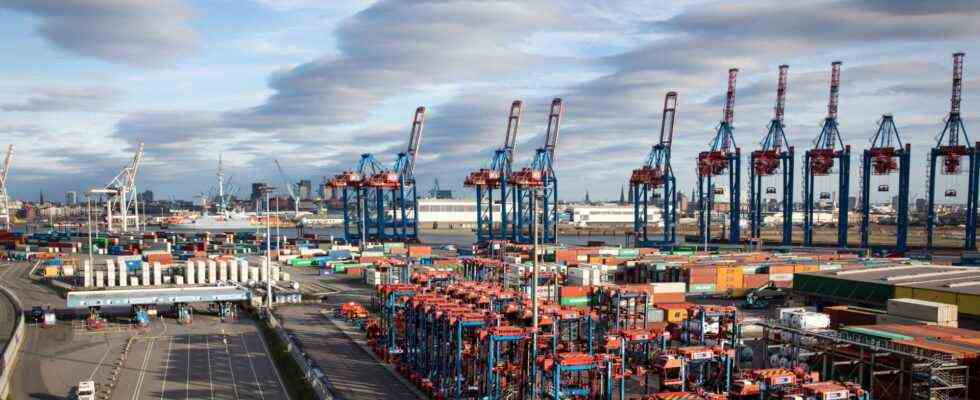Status: 08/25/2021 11:33 a.m.
Delivery bottlenecks and rising corona numbers have clouded the mood in the German economy for the second month in a row. Industry, tourism and the hospitality sector are particularly affected. Business in China is also weakening.
The mood in the boardrooms of German companies is deteriorating further due to the ongoing supply bottlenecks. The ifo business climate index, the most important leading economic indicator, fell in August to 99.4 points from 100.7 points in July, as the Munich economic research institute announced in its survey of around 9,000 managers. It was the second decline in a row.
Analysts had expected a decline in the barometer for Germany, but estimated 100.4 points. The deterioration is due to less optimistic expectations from companies. “Delivery bottlenecks for intermediate products in industry and concerns about rising numbers of infections are burdening the economy,” said Ifo President Clemens Fuest. “Worries are growing, especially in the hospitality industry and tourism.”
Industry expectations at their lowest level since November
The rising number of infections had practically collapsed expectations in both sectors, said Ifo economic expert Klaus Wohlrabe to Reuters. “The optimism of the past weeks is completely gone here.” Most recently, tourism and the hospitality industry were able to sniff the morning air after months of restrictions.
According to the Ifo Institute, the business climate clouded over in all of the sectors examined except for the construction industry. In industry, the expectation indicator fell to its lowest level since November. The companies reported weaker demand. The business climate also fell among service providers and retailers. The companies are also more skeptical about the business outlook. “The outlook for the coming months suffered a significant setback,” emphasized Fuest.
Delivery bottlenecks persist
The supply chain problems are likely to worsen rather than relax, said Bankhaus-Lampe expert Bastian Hepperle. “But if important parts such as semiconductors are missing, well-filled order books cannot be processed quickly.” The consequences are a relocation of production into the future and continued long delivery times.
“70 percent of industrial companies are now complaining about bottlenecks in preliminary products (previous month: 64 percent),” explained Wohlrabe. Every second company wants to raise prices because of the sharp rise in costs.
Recovery intact?
By contrast, the managers assessed their current situation somewhat better than last time. After shrinking at the beginning of 2021, the German economy grew again by 1.6 percent in the spring. The continued high level of the business climate is an indication that the recovery of the German economy is intact, according to the analysts from the Landesbank Hessen-Thüringen.
The experts at Landesbank Baden-Württemberg expect the German economy to be able to increase its pace of growth in the summer. “Ongoing supply bottlenecks in the industry and concerns about new corona restrictions in autumn lead to increased uncertainty and caution with a view to the final quarter.” The Bundesbank had recently forecast a slower recovery.
Cracks in the German China business
German exports also give little reason for hope. The China business of German exporters shrank in July for the first time in almost a year. Exports to the world’s second largest economy fell by 3.9 percent compared to the same month last year to 8.4 billion euros, according to the Federal Statistical Office. That was the first decline since August 2020 and at the same time the biggest minus since May 2020, when the People’s Republic was still suffering from the first corona wave and exports there plummeted by a good twelve percent.
After the USA, China is the second largest buyer of goods “Made in Germany”. The German Chamber of Commerce and Industry (DIHK) therefore sees the decline as “a sobering sign”. “In the Corona crisis, China has so far been the economic engine of the world – and also of the German export industry,” said DIHK foreign trade director Volker Treier. German exports there grew by 19 percent to almost 53 billion euros in the first half of 2021.
Transport problems in shipping and bottlenecks in materials have now caused disruptions in the international supply chains: According to the DIHK survey, 73 percent of German companies report longer waiting times for ordered raw materials, goods and preliminary products. In addition, there is the flattening economy in China, where the measures to contain new pandemic spots and the consequences of massive floods are currently having a dampening effect.

